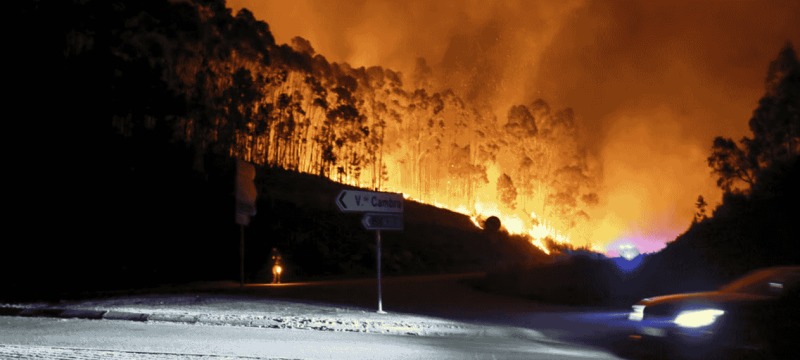Wildfires have broken out in Portugal and Spain, exacerbated by extreme heat and dry conditions. The fires have led to significant destruction and loss of life, prompting urgent firefighting efforts.
Severity of the Fires
In Spain, the fires have scorched over 382,000 hectares, marking the worst wildfire season since 1994. The fires are concentrated in the western regions of Castile and Leon, Galicia, and Extremadura. In Portugal, approximately 254,000 hectares have been burned, making it the worst wildfire season since 2017.
Loss of Life and Displacement
The wildfires have resulted in at least eight deaths—four in Spain and four in Portugal. Thousands of people have been evacuated from their homes due to the advancing flames. The fires have also caused significant air quality issues, with smoke affecting regions as far as France, the UK, and Scandinavia.
Climate Change Connection
A recent study by World Weather Attribution found that the extreme heat and dryness fueling the Iberian wildfires are now 40 times more likely due to human-caused climate change. These conditions are about 30% more severe than those in the preindustrial era.
International Support and Efforts
Firefighting efforts are being supported by neighboring countries. Spain is receiving assistance from France, Italy, Slovakia, and the Netherlands, while Portugal has received help from Sweden and Morocco.
Ongoing Challenges
Despite efforts, the fires continue to pose a direct threat to communities. The thick smoke has made aerial firefighting operations difficult. Authorities are working tirelessly to contain the blazes and prevent further damage.
Read More : California Wildfires Claim 5 Lives, Threaten Iconic LA Landmarks







